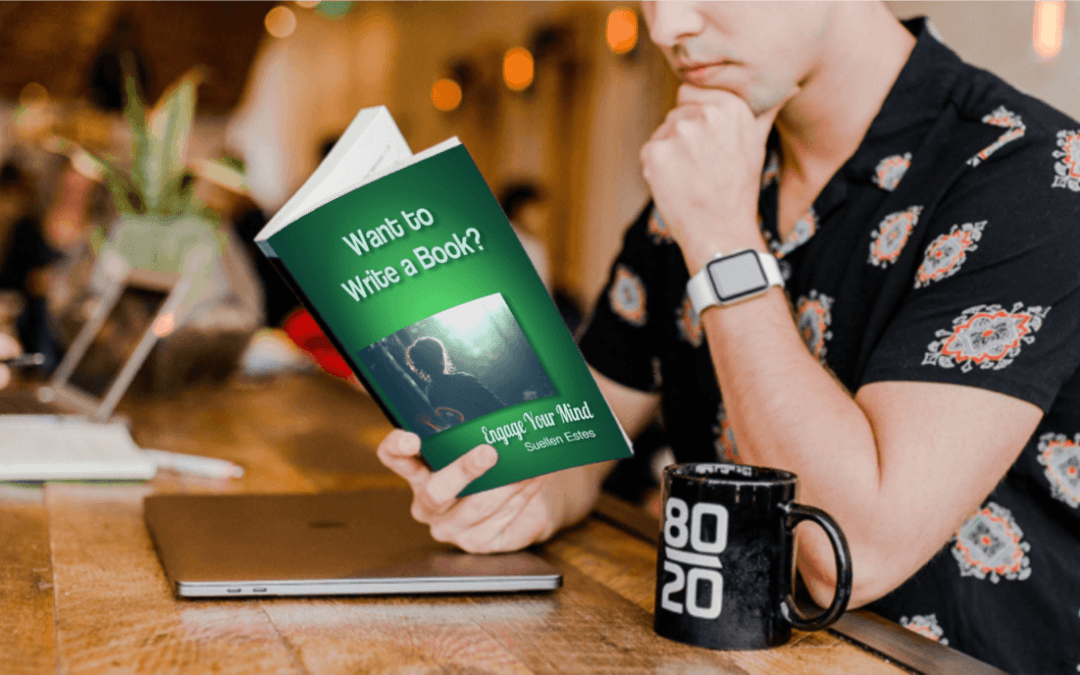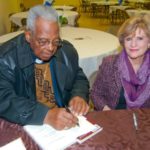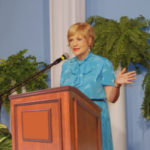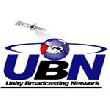
by Suellen | Writing a Book, Writing Tips
Your content is your livelihood.
Content is what makes people come to your site. It’s also what makes people trust you and buy from you.
So whether you’re using your content to pull in traffic or you’re selling content to fill up your bank account with cash, your business depends on your ability to create a lot of good content. And the faster you can create this content, the more quickly you’ll enjoy the extra traffic, subscribers and sales.
Here then are three surefire tips for creating good content, fast…
1. Create a Good Outline
A good outline, keeps you focused. You won’t waste time straying to this and that. And this focus will help you write more quickly.
This is particularly true if you’re writing something longer, like a report or e-book. That’s because it’s easy to get overwhelmed with the thought of writing something so long. However, when you have a good outline, you can think of each section on your outline as an article.
Thus you can think of it as writing a series of articles, rather than writing a book. Psychologically this makes it easier to write, so you’ll complete your content piece much faster.
2. Use Speech-to-Text Technology
Run a search in Google and you’ll uncover several different software products to convert your speech into text. One of the most well-known of these is Dragon Naturally Speaking.
You can find at Nuance.com as well as your favorite retailers like Staples.com and Amazon.com.
No matter what software solution you choose, you will need to do two things:
First, get a good microphone. Your software will work better if your words sound clear as you say them into your microphone. If you prefer, you can get a headset microphone for convenience.
Second, train the software. Yes, you will need to spend some time training the software to recognize the way you speak (your voice, accent, etc). So while this does take some time upfront, in the long run you’ll save time once you’ve gone through all the training with the software.
3. Write Fast Without Editing
One sure way to slow down your writing is to stop and edit nearly sentence as the go. However, while editing is necessary, it’s something you should do AFTER you’ve created the piece (not during the writing process).
Think of it this way…
Editing is a bit of a logical, left-brain activity. That’s because it requires you to remember grammar rules, look at your sentence structure and make decisions about whether you’ve written a sentence or paragraph correctly.
On the other hand, the actual writing itself tends to be more of a creative process where you come up with unique ideas and interesting ways of expressing these ideas. Thus if you stop midway through the writing process to think logically about things like grammar rules, then you’ll just end up stifling your creativity.
If you’re used to editing as you go, then it’s going to take practice to write without editing. Best thing you can do is set a timer for 15 minutes and write as fast and furiously as possible during the allotted time. When the time is up, take a short break, reset your timer and do it again.
You can even make a game out of it by challenging yourself to write more words during each 15 minute block of time.
When your content piece is all finished, then you can edit it.
In Summary…
If you can learn to write faster, then you’ll get more done in less time. And the more content you can create, the faster your business will grow. So give these tips a try and see if they don’t help you increase your writing speed!

by Suellen | Meeting the Challenges, Writing a Book
Now Could Be Your Time
I hope you are coping well during this chaotic time. There is a lot of fear and anxiety out there.
However. For those of us who know our God, it can be a time for us to grow in our faith. As we spend time with Him and His Word (the Bible), we can find a peace which passes all understanding rising up within us.
Time with God can quieten our nerves. And we can come out of this crazy episode with greater confidence than ever before.
This can also be a time for great productivity!
How, you say?
Let me explain.
In 2009 my husband’s mother came to live with us. She was a delightful person, and we loved having her.
However, there was one catch. Because of her health condition, Mom couldn’t be left alone. Someone had to be with her at all times.
A good portion of the time, I was that person.
As a Type A person, just “hanging out,” was never my first choice.
So I started thinking.
What could I do during this time?
For many years, I had thought about writing a book. But I just hadn’t had the confidence – or the time, to do it. So that was one thing I left on the shelf.
Soon I began to realize that this was the perfect time to write that book!
I bought a book on self-publishing, and I began to learn. Then I began to do what I had learned.
That’s when I wrote my first book. Forever Upward: A Mother’s Journey Through Prayer.
Since that time, I have written more than 20 books which are in paperback and on Kindle.
But that was the start.
That time when I was required to spend a lot of time at home turned out to be the start of a new career for me.
As I think about what is happening right now, I am reminded of that moment in my life.
The time at home became a turning point for me.
If you are having to spend lots of time at home, this could be your turning point.
This could be the time you decide to start your online business. Or start your blog.
Or write your book.
If you are thinking about writing your book, I think you’ll love my online course. It’s a step-by-step approach which eliminates the overwhelm connected with a big project.
It’s Time For You To Write That Book 2.0.
- It starts with your mindset and organizing your book.
- Then goes on to some writing tips.
- How to make time for your project.
- Some info about how you can plump up your topic and make it more interesting. (With free resources).
- How to format your book in MS Word.
- Then how to upload it to Amazon for worldwide sales.
- Also a few tips on early marketing.
- Plus lots of bonuses.
You can purchase the course in Video, Audio, and Transcript form. Along with bonuses.
Or just Audio and Transcripts.
Or just the transcripts.
All of the packages have bonuses.
I think that you will be glad that you “used your time wisely.” Your kindergarten teacher will certainly give you kudos.
The time factor is one blessing we have on hand right now.
And it could be life-changing for you!
With the right focus and determination, this could be a turning point moment – for the better.
Take a look HERE.
Stay safe and Keep on Soaring!


by Suellen | Meeting the Challenges, Writing a Book
Do You Have Enough to Say for a Book?
When working with writers, I hear about all sorts of obstacles. Not enough confidence. Not enough time.
One of the biggest is “Not enough to say.”
Sometimes people will begin to write a book and spill everything they can think of onto a page, only to find that all of their thoughts amount to just a short amount of writing.
Then discouragement sets in and the familiar lament, “I don’t have enough to say to write a book.”
This is a common problem, and one which most writers face.
Often the issue is that famous “writer’s block.” There are tons of techniques for getting over this hump.
On other occasions, the writer truly doesn’t know enough to say. The standstill is real.
That’s why one of my webinars in It’s Time For You To Write That Book 2.0 is dedicated to research and information.
When you are writing your book, you don’t have to be the origin of every idea you include. As long as you give credit, your book actually has more significance when you include quotes and thoughts from other writers. That’s actually a plus and not a minus.
And also there is that wonderful world of Private Label Rights and Public Domain. These are books, articles, photos, and other items which you are free to use as if they were your very own.
The rights differ from item to item, but often you can – and even are encouraged to- change them. You can add your voice and put these pieces into the context of your book. There are e-books available which can be edited and included in your portfolio.
I love talking about this, because it’s truly a treasure trove for authors. Even if you are the top authority in your field, your expertise is enhanced by the expertise of others.
So if you have thought that you didn’t know enough to write your book, you’ll get some good ideas from my On Demand Course. For a short time, the entire course with videos, audios, transcripts, and lots of bonuses can be obtained at https://OurCBI.com. At almost half price.
I hope you check it out. Your book is important for establishing your credibility, and others will be inspired and encouraged by what you have to say!
We’ll talk soon.
In the meantime, Keep on Soaring!

by Suellen | Meeting the Challenges, Writing a Book
There’s just Not Enough Time!
I have to say, this has been my lament in many situations.
Of course, we know the adage that “everyone has the same 24 hours.” But that adage didn’t make any difference when I was attempting to get more done.
With a church to oversee. Children and grandchildren. Serving on City Council. Other community activities. And on and on.
Then I read Stephen Covey’s book again. 7 Habits of Highly Effective People.
Do you remember the chapter about the rocks in a jar?
First, you have a pile of rocks of many different sizes and you fill the jar the best way you can. Many rocks get left out. They just won’t fit. There’s not enough room.
Then you try a different approach.
You put in the big rocks first. Then the middle sized ones. Finally you can fill in the crevices with the tiny rocks and pebbles.
Covey was linking this demonstration with time management. There are those big things, which require most of our time. The nine-to-five job. The running of the house. Childcare. Church work. Daily devotions.
Next come the middle sized time demands. Personal care. Doctor and dentist appointments. Volunteering at your child’s school carnival.
Then there are those little items. Leave dog at vet. Drop off cleaning. Write a quick note to teacher. You know those tiny time consumers which can overwhelm your day if you let them.
So Covey recommends that you take out your calendar and insert the large items first. Then the middle-sized. After those bigger plans are marked out on your calendar, it will be surprising how much vacant space you will see.
This Covey suggestion is what I like to use.
All those tiny time consumers can be put on a list. You have 10 minutes while you are waiting for your child? Pull out an item from your list and whip it off quickly. A phone call. A note. Paying a bill. Making a grocery list or planning a meal.
It’s amazing what can be done with proper planning.
But this is the best part: When you plan your time in this way, there will still be some blank spots on your calendar.
Those are the times you can use to take on some long term projects. Those things you don’t think you have time for right now.
That, in fact is how I wrote and published my first book.
After years of feeling inadequate and too busy to write, I marked my calendar and found some time. Maybe an hour here. Two hours there.
It’s amazing what concentration and commitment will do for us.
Those smaller moments add up, and soon the project is completed. That “wow” moment when it’s done!
The excitement of completing that first book was worth all of the effort I had put into finding the time. All of the organization and planning. That first book was worth whatever-it-took to do it! I was a published author!
Now I have to say that there are other ways of establishing time for a project. That’s why I devoted a whole webinar in my course “It’s Time For You To Write That Book, 2.0” to The Time Factor. I discuss the Big rock/little rock method. I also discuss some other approaches.
Everyone is different. Even though this Covey idea suits me, not everyone thinks or works in that fashion.
But there are other ways of getting the job done. Other plans for finding or making the time for long term projects you want to do.
Plans which will help you to write your book. To make that lasting impact you want to make.
Be blessed. And remember to Keep on Soaring!

by Suellen | Meeting the Challenges, Writing a Book
I am thinking back to a special August day in 2010. My husband and I had just celebrated the birth of a beautiful grandson, so I was already on an emotional high. And then as we arrived back home and saw the box on our porch, I could hardly contain the excitement.
My books had arrived! My very own books!
With trembling hands, I opened the box and saw my name staring back at me. My beautiful books. All the work I had put into this masterpiece (at least to me, it was a masterpiece) – had paid off.
It was done. My very own book ready to give and to sell. Ready to bring encouragement to those who read it. Ready to open new doors for me since now I was a published author.
I began to reflect. I had wanted to write this book for a long time – mulling over ideas for many years. Why had I waited so long to actually do it?
Many things had held me back from experiencing this moment.
There had been confusion. And overwhelm. How could I write a whole book? What if I didn’t have enough to say? Who would really want to read it? Would it cost too much? And on and on…
Obstacles of thought and emotions. Fear, anxiety, and overwhelm.
I just wasn’t sure that I could do it.
Do you relate to what I’m saying? Do you have obstacles of mind and emotions which hinder you from accomplishing what you want?
Let’s face it. Each of us has obstacles in our life’s journey.
Some of these are because of our environment, our health, or our unique circumstances. We may be dealing with sickness in ourselves or a close family member. We might be going through a major life change – such as a divorce or the death of someone close.
Sometimes demands are made on our time and energy by good seasons in our lives. We may have several small children who need an usual amount of attention. Or we may be getting married or starting an engaging career.
Yet when life is rolling along at a more even pace (if that ever really happens), we can still face obstacles in our minds. Our thoughts, our emotions, and our habits can cause us to stand still and not move forward.
We may occasionally dream about the “what if’s,” but we don’t take any steps toward accomplishing those dreams. We treat our lives as if we will either win the lottery – or not. The big moment will come, or it won’t.
And in the meantime, we remain idle without moving toward those dreams.
Well I have met many people who have a dream of writing a book. Maybe they have a great story concerning their own unique experiences. Perhaps they realize that a book would be just the thing to introduce Jesus to those who don’t know Him. cement their credibility in their field. Maybe they want to make some extra money from the book sales.
There are many reasons for writing a book.
Yet here is the truth: Many talk about it, but very few ever really get it done. They dream and they talk, but they never actually do it.
I understand this dilemma, because that’s the way I was for many years. I would think about it. I would even occasionally jot down a few notes. But I just couldn’t get over that unidentifiable roadblock. It just seemed too hard. Out of reach. I would put it aside and forget about it for awhile.
Well my day finally came, and what made that switch for me?
I began studying about self-publishing. I read books, attended seminars, and online webinars. Somehow, during that process, I gained courage and began the journey. One step at a time, I completed the trip and published my first book.
I realized that those who were writing their books were just like me – like you. If they could do it, then so could I.
Now several years later, I have more than 20 books published in paperback and on Kindle. Once I started the process, each one became easier.
Now my goal is to help others who were just like I was.
Maybe you are one of them.
If you have been thinking about writing your book but haven’t done it yet, then maybe overwhelm or confusion is holding you back.
In my series of 12 On Demand Webinars, Audios, Transcripts, Action Step Sheets, and Bonuses, I take you step by step through the process. Your Planning, Writing, Pre-marketing, Designing, and Publishing can be accomplished by you – just as they were by me. One step at a time – and it’s done.
Please check out the opportunity. At https://OurCBI.com. The world needs to hear from you.
And for a limited time, the entire course will be half price.
In the meantime, Keep on Soaring!

by Suellen | Writing a Book

Starting your book can be a big deal. In fact it is a big deal. What you have to say is important.
And leaving your messages in a hands-on touchable form can be very significant.
Several years ago my husband and I purchased a house which had been in his family for over 130 years. A couple of generations earlier, the owners had been some aunts who were college professors. They never married. Their entire lives were given to teaching at a small, liberal arts college.
The two ladies were avid readers and life-long learners – and there was plenty of evidence to prove it. Every room in the house had bookcases loaded with books and magazines. In the attic and in upper regions of the packed closets were boxes of research and papers.
On several lazy afternoons I found myself upstairs in “Aunt Bess’s” old bedroom, rummaging through some of the boxes. My favorites were the many letters and cards they had received in the late 1800’s and ealy 1900’s.
The handwriting on each letter was like a work of art. You could see where the pen had been freshly dipped into the ink, and dripped on the paper. Every card was like a masterpiece of calligraphy.
But the most important part to me was what they said. The messages concernng the growth of the town and the college. The inquiries about other professors and their importance to the region.
The letters which were the most valuable were those which expressed special thoughts concerning Jesus, the strength of the church, or problems of the nation or region. Those were the ones which reflected the pulse of the times.
Some of the letters were written on a typewriter, but all of them were on paper. Physical copies which could be stored and handed down from generation to generation.
Fast forward a century, and paper is sometimes thought of as obsolete. We repeatedly opt into online statements and receipts. We buy digital books and magazines. We communicate with email or texts.
All of that is terrific. It’s much faster and easier.
But wouldn’t it be nice to leave someting tangible for your descendants? Wouldn’t your grandchildren like to know what you have to say? (Especially when they are older). Wouldn’t future generations like to have something they can hold in their hands? Something which relays your thoughts in this day and age? Something which describes the psychology of this specific time in the earth?
Digital methods are wonderful for quick and easy communication, but those messages won’t last forever. They always require special equipment – whether phones, tablets, or computers – to acess them. And as devices gain in sophistication, old files are not always obtainable.
So back to the value of books.
If Aunt Bess’s letters had been digital, they would have been long gone. I never would have been able to read and enjoy them.
As you are making a decision about writing your book, these are things to consider. You want to leave something that is lasting. And tangible. And transferrable from generation to generation.
Your book may be your autobiography, ideas for raising your children, or lessons from the Bible – with your special emphases. The very fact that you are putting on paper ideas which can be passed on from generation to generation is a very significant thing.
So let me encourage you.
If you have thought about writing a book, then do it. The next posts will be about tips for making it happen. With a few techniques – and tricks – you will be well on your way to having something to pass on to your grandchildren.
So Where Do I Start?
Now I know how it is. Your next thoughts will be how in the world do I get started? Very often we have many ideas floating in our heads in a disorganized fashion.
How do I get these thoughts into some sort of coherent form? What do I really want to say? Are these ideas important enough for anyone to want to read them?
The answers come one item at a time. When you write a book, you are beginning a journey, and you take it one step at a time. That’s how it’s done.
So take a deep breath. Relax. And begin to define your goals.
Who are you writing for? Your family? Women? Men? What ages are you trying to impact?
What do you want to accomplish with your book? Is it for education? Inspiration? Humor?
If you will spend some quality time in this early planning stage, your writing will be much easier. You will be able to stay focused as you complete your writing.
For additional ideas about this early planning stage, grab a free copy of my E-book, Want to Write a Book? Engage Your Mind.
You may grab your free copy HERE.
In the Meantime, Keep on Soaring,


















